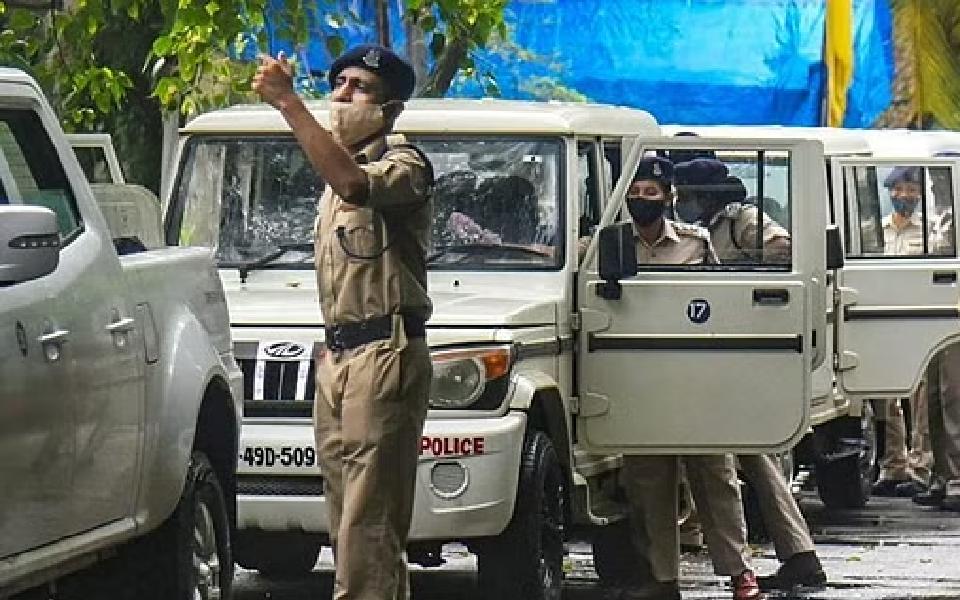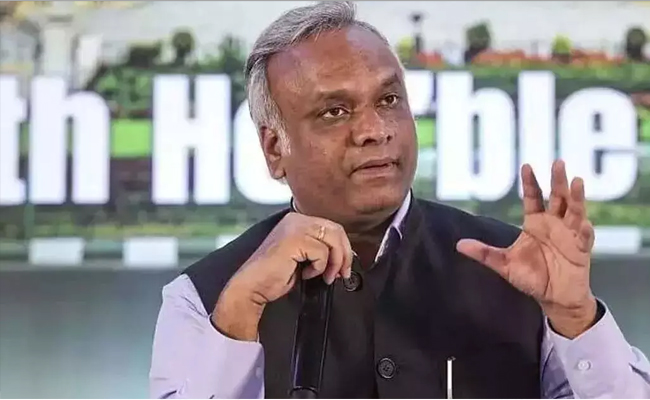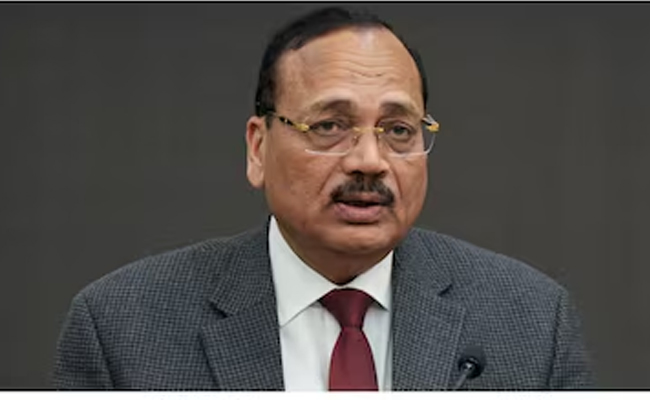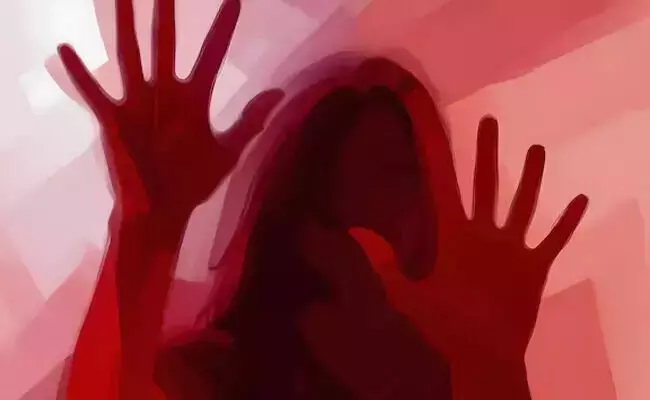Navsari, Jul 5: Navsari police in Gujarat on Wednesday paraded a 37-year-old man arrested for allegedly raping and blackmailing a girl for nearly five years.
Asim Nizam Shaikh, a resident of Khergam town of Navsari district, was arrested on Tuesday from Vasai near Mumbai "in a case of love jihad", as per a police statement.
After securing his remand from a court, the police paraded Shaikh through the streets of Khergam and made him apologise to the people.
Local residents shouted "Jai Shree Ram" and showered rose petals on the police personnel. Some women also gave bouquets to the police.
Shaikh allegedly raped the girl for the first time five years ago when she was 16, and recorded a video which he used to blackmail her, police said.
"Love jihad" is a term used by right-wing activists to refer to an alleged conspiracy to convert Hindu girls to Islam by marrying them.
To save himself from getting caught, Shaikh, who is married and has children, forced the victim to marry his accomplice Ronak Patel, police said.
Patel, who was behind bars in a case of murder, came out on parole recently and was yet to be apprehended.
On the victim's complaint, a First Information Report was registered against the duo under the Protection of Children from Sexual Offences Act, sections 376(2)(n) and 506(2) of the Indian Penal Code which deal with rape and criminal intimidation, and the Information Technology Act at Khergam police station on June 23.
"Shaikh and Patel went underground after the FIR was registered. We then learnt that Shaikh had reached Mumbai from Jaipur and was staying at a hotel in Vasai. We nabbed him from Vasai on Tuesday and brought him here. A POCSO court here remanded Shaikh in nine-day police custody," said Navsari district Superintendent of Police Rushikesh Upadhyay.
Shaikh, a resident of Khergam, allegedly blackmailed the girl and her family for five years by using the videos he had recorded. He even broke her engagement by sending the videos to her fiance, the SP said.
Navsari police said in their statement that Shaikh was a bootlegger and had 18 cases related to prohibition, assault and illegal money-lending registered against. His father Nizam and three brothers also face criminal cases, said the statement.
Let the Truth be known. If you read VB and like VB, please be a VB Supporter and Help us deliver the Truth to one and all.
Bengaluru: Rural Development and Panchayat Raj Minister Priyank Kharge has alleged involvement of the Rashtriya Swayamsevak Sangh (RSS) in a money transfer network at global level.
Posting his allegation on his personal ‘X’ account on Saturday morning, Kharge said that he was referring to an issue that had not been dealt with decisively by Indian media houses.
“Here is a crucial story that the Indian media will never touch,” the minister has said, and clarified, “This so-called “body of individuals” has built a global network of over 2,500 affiliated organisations. Through these fronts, the RSS collects “guru dakshina” to fuel its divisive agenda. (sic)”
Kharge has further alleged, “The world’s largest NGO is running amok, laundering money and evading accountability.”
The minister added, “Here is a map of their organisational architecture of their “Vichar Parivaar.” https://rssproject.caravanmagazine.in / @thecaravanindia”





